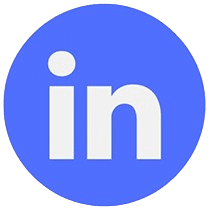Top tips on how to…
Be competent in a competency based interview.
Interviews have evolved and many companies, particularly the public sector and large organisations are switching to competency based interviews. These work on the premise that how you performed in the past is a good indication of how you will perform in the future. Questions are specific, based on competencies such as communication skills, leadership qualities, resolution techniques, management style.
While this type of interview can be challenging, it gives the interviewee a great opportunity to demonstration their suitability for a role by demonstrating successes in relevant areas in the past.
You can also prepare for these types of interviews by reading the job description carefully, anticipating the types of competencies that will be required for the role and having pre-prepared answers to demonstrate your past successes in this area.
Preparation is key
The good news is that you can prepare for these interviews. Employers want to know what skills you possess, how you’ve used them in the past and how you will transfer them to the role being advertised. Read the job description line by line and identify the competencies or skills that are required. Look at your current or previous roles and identify areas where you excelled at those competencies and highlight specific examples to demonstrate this.
Rehearse your answers
Many organisations ask that you use the STAR method to answer the questions. STAR stands for Situation, Task, Action and Result. You should be very specific in your answer and deliver it articulately. Identify the situation that suits the competency or skill being discussed. Outline the task that was at hand, the action you took and the result you achieved. Remember this is all about you. While there is no ‘I’ in Team, interviews are a time to focus on yourself and your personal achievements and successes or how you contributed to a team success. Another similar approach is to generally respond that you can and have done many times previously. Give a singular specific example – who, what, where, why, how, challenges encountered while identifying the scale of the situation. Outline the outcome, the key learnings and insights gained and relate the situation to the role that you’re interviewing for.
Pay attention to body language
The interviewer is human and will display signs of interest, boredom, or excitement at your answers. If you are well prepared and rehearsed you will be in a good position to adapt your answers if you feel you haven’t the interviewer’s full attention. If you feel their body language is conveying to you that you are slightly off the mark, then modify or adapt your answer to pique their interest. The best interviewees are ones who are confident in their ability to perform the job and can articulately demonstrate why by drawing on past experiences. If you have practiced and are confident you will be able to adapt your answers during the interview.
Anticipate the questions in advance
By closely scrutinising the job description you should have a clear understanding of the types of skills and competencies required for the role. This will help you to pre-prepare answers. Some typical questions could be:
- Problem solving
Tell me about a time you encountered a problem at work, had to solve it and turn it into a successful outcome for the organisation
How did you identify the problem
How did you identify the best solution
What was the successful outcome for your organisation
- Resilience
Tell me about a time you were working under a lot of pressure
How did you handle it
What was the reason
How did you resolve it
What would you do differently next time
- Communication skills
Give me an example of a time you had to communicate problems/issues/or suggestions about improvements to a wider team
How did you approach this
What type of communication tools did you use
What was the outcome
- Achieving a goal
Tell me about a time you achieved a particular goal at work
How did you approach it
What were the barriers you encountered
What was the successful outcome
- Leadership/team work
Tell me about a time you had to adapt your approach to work with a team
What difficulties did you encounter
What did you do to ensure buy in from the team
What was the outcome
- Customer focus
Tell me about a time you had to ensure you met the needs of a customer while also ensuring your company’s objectives were met
How did you balance the two
What compromises did you have to make
What was the success of the interaction
- Innovation
Provide us with an example of an exciting new strategy/idea you came up with
How did you pitch it to others
What was the outcome
- Using initiative
Describe something you have done to improve the performance of your team/work unit
How did you implement it and get team buy in
What was the outcome
- Strategic thinking
Tell us about a time you had to secure input from other departments in order to meet the organisation’s strategy
How did you ensure buy in from the appropriate managers/leaders
- Stakeholder management
Tell us about a time you had to work with multiple stakeholders
How did you manage all of their expectations to achieve the required outcome
What were the successes and areas for improvement
- Commercial awareness
Tell us about a time you had to achieve a commercial target and the steps you took to ensure success
What obstacles did you meet
What was the outcome
- Decision making
Tell us about a time you had to make an unpopular decision
Who’s feathers were ruffled
In hindsight was it the right decision
- Planning and organising
Describe a time you had to plan and execute a project from start to finish.
How did you organise it
What contingencies has you in place
What aspects were successful/unsuccessful
What would you do differently next time
Be yourself
Interviewers don’t want to be met with a fake version of you. They want to get an insight into the real you and how you would react in particular situations. How you present yourself at the interview, dress, address the interview panel, shake hands, eye contact, and posture, are all key to how you will be perceived in the eyes of the interviewer.
They don’t want a text book answer. They want an honest example with real outcomes which demonstrate real world situations. Make sure your answers are relevant, honest, structured and well delivered and you are sure to impress.



